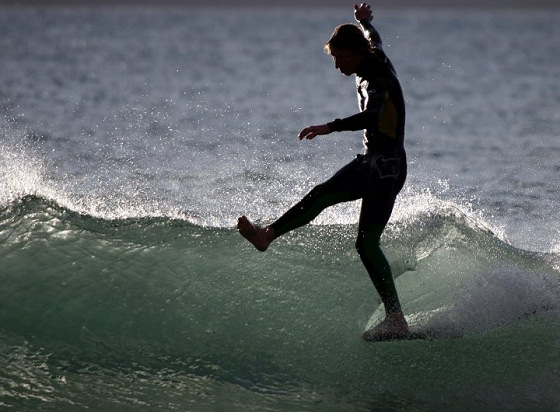Surfing is an exhilarating and challenging sport that can be a lot of fun, but it’s important to be prepared and informed before hitting the waves. Here are some things to know before surfing:
- Swimming Skills: Make sure you are a strong swimmer. Surfing often involves paddling through waves and being comfortable in the water is essential for your safety. If you’re new to this, you can stay in the shallow waters – but make sure you’re not the only one out there.
- Safety First: Prioritize safety. Understand the beach’s warning signs and flags, and be aware of rip currents. Always surf in areas with lifeguards present, if possible.
- Surf Etiquette: Learn surf etiquette, which includes understanding the rules and respecting other surfers in the water. Right of way rules, not dropping in on someone else’s wave, and being patient are crucial.
- Surfboard Selection: Choose the right surfboard. Beginners often start with a longboard, which provides stability and is easier to paddle. The choice of board can significantly affect your learning curve.
- Wetsuit Knowledge: Depending on the water temperature, you may need a wetsuit. Know what thickness and type to choose based on the conditions you’ll be surfing in. The colder the water is, the thicker the wetsuit you will want. We offer 3/2mm wetsuits with our lessons and rentals.
- Weather and Conditions: Pay attention to the weather and surf conditions. Wind, tide, and swell can dramatically impact the waves and your surfing experience.
- Local Knowledge: Talk to local surfers or check online surf reports. They can provide insights into the best surf spots, currents, and hazards specific to your area.
- Safety Equipment: A leash is a vital safety accessory. It keeps your board from drifting away in the surf. These attach to your board and wrap around your ankle. Also, consider using surf wax for better traction. You spread it on top of the board where your feet will go.
- Paddling Technique: Learn the proper paddling technique. Efficient paddling is essential to catching waves and maintaining your position in the lineup.
- Pop-up and Stance: Practice your pop-up, which is the motion of getting from lying on your board to standing. Work on your surfing stance, with your feet shoulder-width apart and knees slightly bent. We recommend doing this on land before getting in the water!
- Balance and Core Strength: Surfing requires balance and core strength. Exercises like yoga, balance boards, and core workouts can help improve these skills.
- Water Safety: Understand basic water safety principles, including how to identify and handle rip currents, how to handle wipeouts, and how to signal for help if needed.
- Patience and Persistence: Surfing can be frustrating at times, especially for beginners. It takes time to learn, so be patient and persistent. You won’t catch every wave or master it all at once.
- Respect for the Environment: Surfing often takes place in beautiful natural settings. Practice Leave No Trace principles and respect the ocean and its inhabitants.
- Physical Fitness: Surfing is physically demanding. Regular exercise to build strength, endurance, and flexibility will help improve your performance.
- Sun Protection: Surfing often involves extended sun exposure. Don’t forget sunscreen, a wide-brimmed hat, and UV-protective sunglasses. If you wear a hat or sunglasses, make sure you have a strap to keep them on your face! Otherwise the ocean will win!
- Know Your Limits: Don’t attempt waves that are too big or dangerous for your skill level. Start with smaller waves and gradually progress to larger ones.
- Surfing Community: Get to know the surfing community. It’s a tight-knit group, and you can learn a lot from experienced surfers.
- Have Fun: Remember that surfing is meant to be enjoyable. Don’t get too caught up in trying to be the best; focus on having a good time and learning from your experiences.
- Lessons: Consider taking lessons from a qualified instructor, especially if you’re new to the sport. They can provide valuable guidance and feedback to help you progress more quickly. We have highly trained instructors to help you get on the waves!
Remember that surfing can be challenging, and it may take time to become proficient. Be safe, respect the ocean, and enjoy the process of learning this amazing sport.






